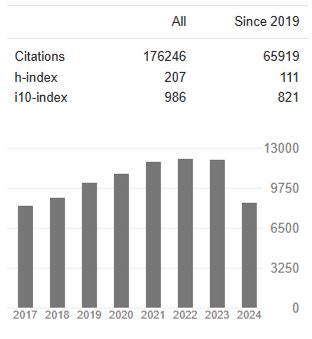Development of the Tendency of Lying in Digital Environments Scale (TOLDES) and Investigation of Psychometric Properties
Abstract
Aylin Tutgun-Unal, Eda Deligoz, Ilkem Ince, Erva Sariyer, Caqri Akyol Cevirir, Zeynep Celikaslan Mete, Ebru Arpaci Nart, Firdevs Sumeyye Tok Caskurlu, Cagla Sen Akkoyun, Sena Akbay-Safi, Osman Sertug Caliskan, Fatma Bostanci, Remziye Keskin and Nevzat Tarhan
Lying is a multidimensional problem that occurs due to cognitive and social factors and harms the person in many ways. With the widespread use of digital technologies, lying behavior has become increasingly easier and more common. Revising existing measurement tools in the literature by incorporating digital media is a need of the digital age. This study aims to develop a valid and reliable scale to reveal individuals’ Tendency to lie in the digital environment and to examine the psychometric properties of this scale according to some variables. The sample was created with 495 participants from across Turkey. The scale named ‘Tendency of Lying in Digital Environments Scale’ (TOLDES) consists of 30 items and 5 factors (Unrealistic sharing, Romantic deception, Exaggeration, Gossip, Anonymity) and explains 69.83% of the total variance. Confirmatory factor analysis of the scale resulted in acceptable goodness-of-fit values. Internal consistency reliability coefficient Cronbach Alpha value was found to be .95. According to Cohen’s d calculations, the use of unrealistic sharing, romantic deception, and exaggeration in the TOLDES creates a difference with a medium effect size in men. It was concluded that the TOLDES was valid and reliable and it could be used in the next studies.




